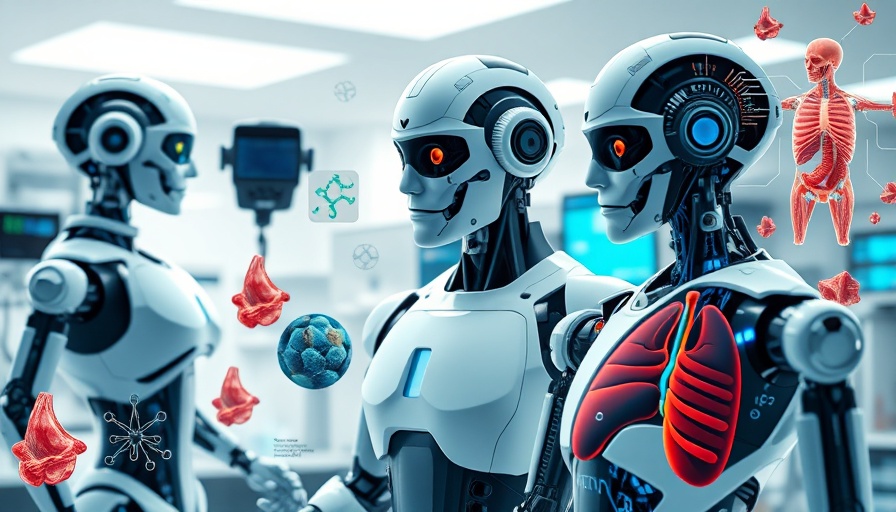
The AI Revolution in Healthcare: Unveiling Insights from the Latest Survey
Artificial intelligence (AI) is redefining healthcare, transforming processes from drug discovery to patient care and administrative efficiency. A recent survey conducted by NVIDIA, the 'State of AI in Healthcare and Life Sciences,' provides critical insights into how AI technologies are currently being utilized and their anticipated impact on the industry.
The Promises of Generative AI in Healthcare
AI technologies, especially generative AI, are emerging as powerful tools for medical professionals. By automating routine tasks such as document summarization and data analysis, AI enables healthcare workers to focus more on patient care. According to the survey, a significant 83% of healthcare professionals believe that AI will revolutionize the industry within the next three to five years.
Generative AI can also expedite drug discovery by analyzing vast datasets to find new protein structures, which can lead to the development of innovative treatments. This application resonates deeply in the pharmaceutical sector, where 59% of respondents identified drug discovery as a primary use case for AI.
Survey Findings: AI's Impact on Costs and Revenue
The financial implications of AI adoption in healthcare are significant. According to the survey, 81% of participants reported increased revenue due to AI-enhanced capabilities, with nearly half seeing results within just one year of implementation. Moreover, 73% indicated that AI has helped in reducing operational costs — a critical factor as healthcare systems strive for efficiency amid budget constraints.
Interestingly, a growing number of organizations express a willingness to invest in AI infrastructure, with 78% planning budget increases to expand AI capabilities. The focus on identifying further AI use cases, optimizing workflows, and hiring more AI talent underscores a proactive approach to strengthening healthcare systems through technology.
Strategic Applications of AI Across Healthcare Segments
Each segment within the healthcare landscape has distinct priorities when it comes to leveraging AI. For instance, healthcare providers, which include hospitals and home care services, have identified administrative workflow optimization as their leading use of AI, accounting for 48% of AI applications. Conversely, medical technology firms prioritize AI in imaging diagnostics, with 71% reporting this as a key focus area.
The role of AI in enhancing medical imaging cannot be overstated. Deep learning technologies are now capable of overcoming traditional limitations in imaging diagnosis, allowing quicker and more accurate interpretation of scans. This advancement not only streamlines radiological practices but significantly enhances patient outcomes by facilitating timely interventions.
Addressing Challenges: Ethical Considerations and Future Directions
Despite the promising advancements AI brings to healthcare, significant challenges remain, particularly in data privacy and algorithmic bias. As AI models become increasingly integrated into medical practices, the necessity of ethical frameworks for data usage becomes paramount. Ensuring patient confidentiality and securing informed consent for data sharing are issues that need to be diligently addressed.
Moreover, as highlighted in our sources, healthcare providers must remain vigilant against the dangers of over-reliance on AI systems, which could inadvertently diminish the critical thinking skills necessary for sound medical judgment. This balance is essential to safeguard the profession's integrity and effectiveness.
Conclusion: Embracing AI's Potential for a Sustainable Future
The integration of AI in healthcare is not just a trend; it represents a profound shift that could redefine patient care and operational effectiveness. As the sector evolves, ongoing investment in AI technologies, alongside ethical considerations, will be key to unlocking the full benefits of these innovations.
The future of healthcare is bright, with AI leading the way. Graduates looking to enter the field should focus on developing skills in AI and understanding its implications in healthcare to leverage potential career development programs designed to harness these technologies effectively.
 Add Row
Add Row  Add
Add 




 Add Row
Add Row  Add
Add 

Write A Comment